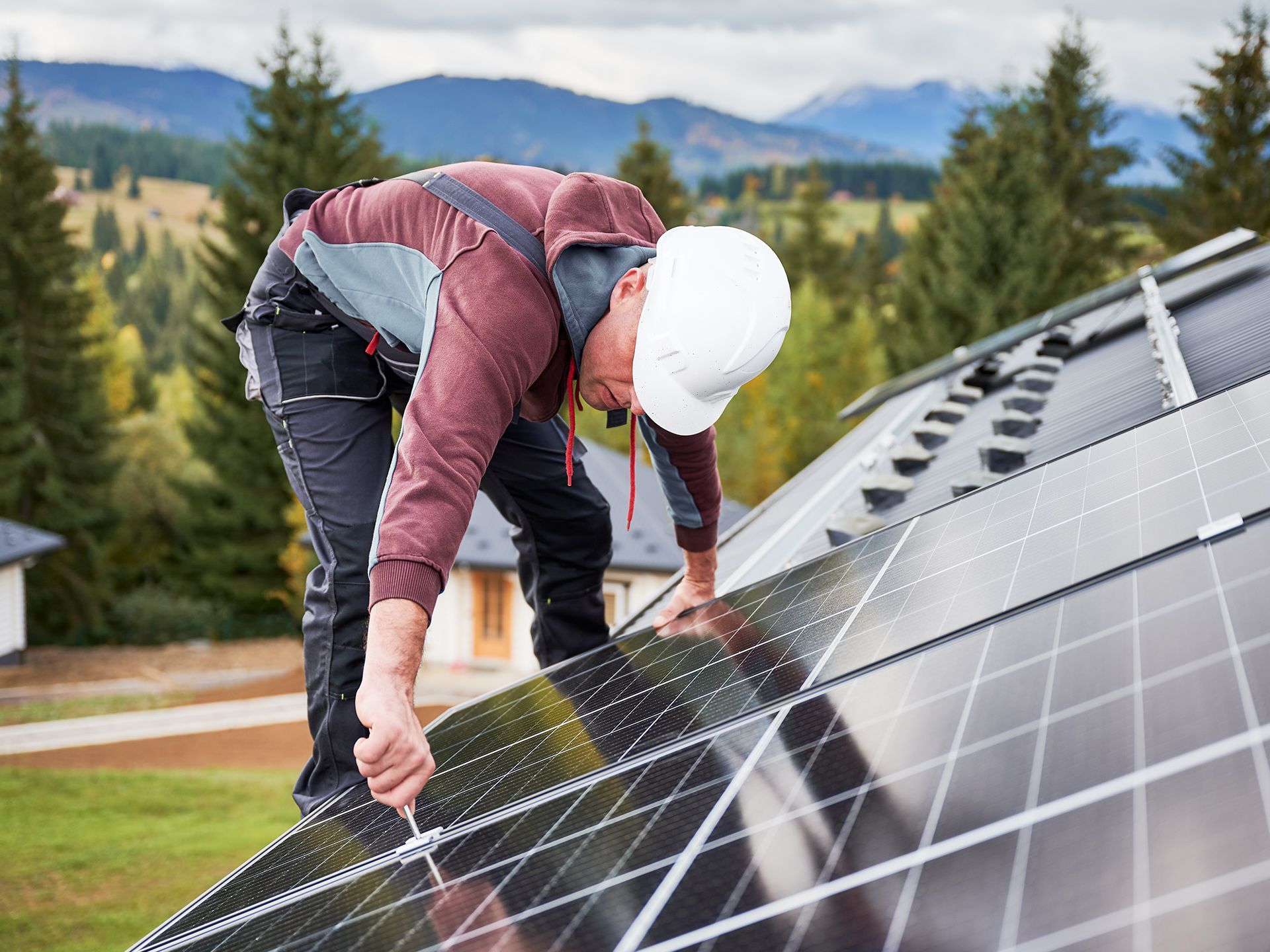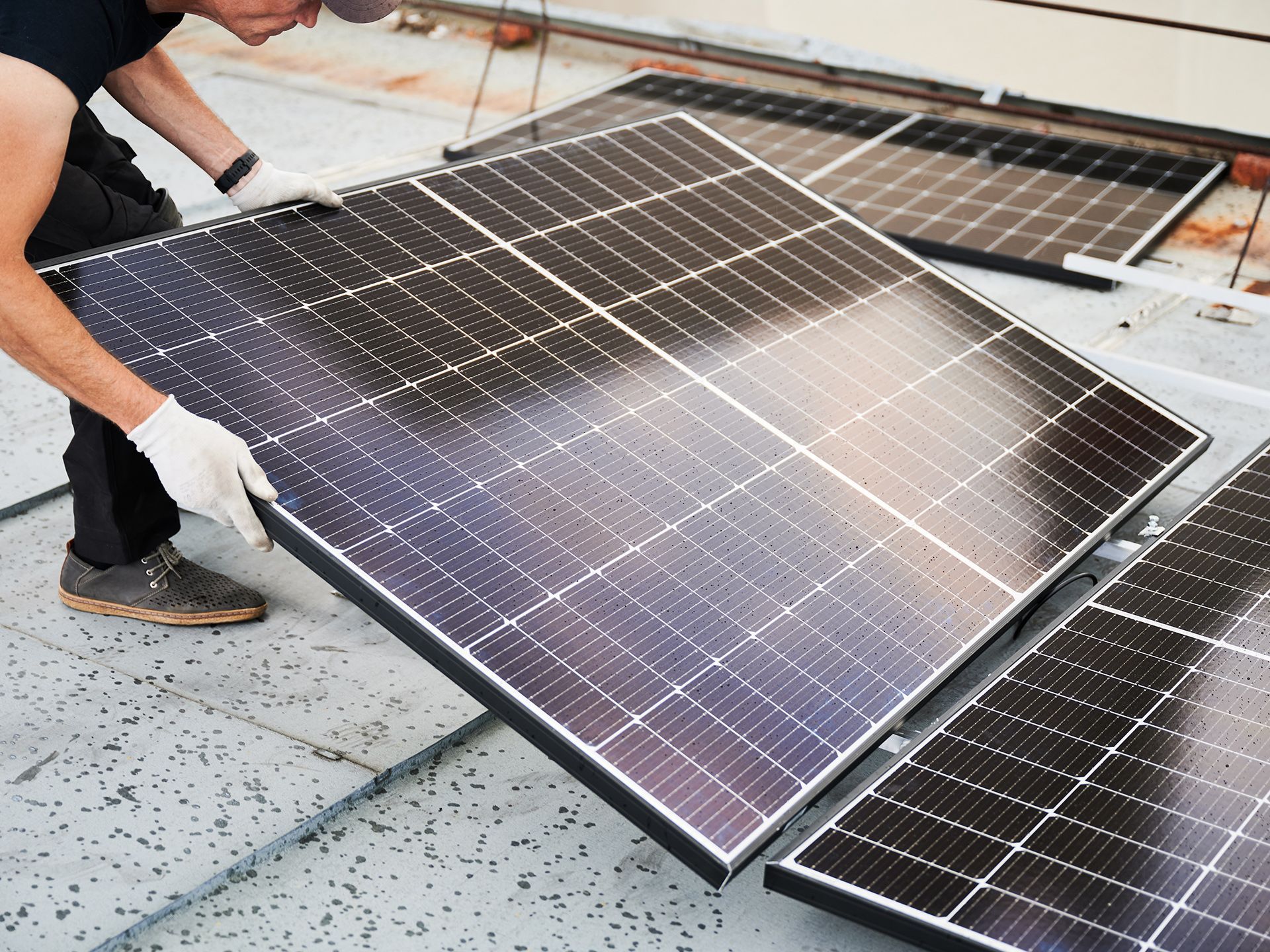Maximizing Your Returns with Solar Energy Storage
Storing solar energy is not just a mere convenience but a crucial step in maximizing the potential of solar power. It serves as a pivotal bridge between energy generation and consumption, allowing surplus energy generated during peak sunlight hours to be captured and utilized effectively. By doing so, solar energy storage offers a multitude of benefits that extend far beyond simple energy management.
That’s why today’s
residential solar installation experts from
SunSent Solar have collected some important insight about solar power storage for you in our in-depth guide here.
Benefits of Solar Energy Storage
Balancing Electric Loads and Optimizing Energy Usage
One of the primary advantages of solar energy storage is its ability to balance electric loads and optimize energy usage. Rather than relying solely on immediate consumption or interaction with the electricity grid, storage systems provide a buffer, allowing excess energy to be stored for later use. This not only helps in smoothing out fluctuations in energy supply and demand but also ensures a more efficient utilization of renewable resources.

Enhancing Energy Resilience
Enhancing energy resilience is another critical aspect of solar energy storage. Traditional energy grids are vulnerable to disruptions and outages due to various factors such as extreme weather events or infrastructure failures. By decentralizing energy generation and storage, solar storage systems create a protective bubble, ensuring a continuous and reliable power supply even during adverse conditions. This not only improves the overall resilience of the energy infrastructure but also enhances the resilience of communities and businesses.
Reducing Carbon Footprint
Furthermore, solar energy storage contributes significantly to reducing carbon emissions and combating climate change. By enabling individuals and businesses to harness clean, renewable energy sources more effectively, storage systems help displace the need for fossil fuel-based electricity generation. This, in turn, leads to a substantial reduction in greenhouse gas emissions, mitigating the impact of climate change and fostering a cleaner, more sustainable future.

Cost Savings through Efficient Energy Management
In addition to environmental benefits, solar energy storage also offers substantial cost savings through efficient energy management and
solar tax credits. By optimizing energy usage and reducing reliance on traditional utility grids, consumers can lower their electricity bills and achieve greater control over their energy expenses. This is particularly relevant in regions with fluctuating electricity rates or limited access to reliable grid infrastructure, where solar storage solutions can provide a cost-effective alternative to traditional energy sources.
Solar Energy Storage Methods
Battery Storage for Residential Applications
When it comes to solar energy storage methods, battery storage emerges as the preferred choice for residential applications. Unlike grid-tied systems, which rely solely on immediate consumption or interaction with the electricity grid, battery systems provide homeowners with the flexibility of storing excess energy for later use. Lithium-ion batteries, renowned for their affordability and efficiency, dominate the residential market, offering homeowners a reliable solution to achieve energy independence.
Optimal Solutions for Commercial Applications
In commercial settings, grid energy storage and mechanical options play a pivotal role in managing energy demands efficiently. These solutions enable businesses to optimize energy usage and mitigate the impact of peak demand periods. Furthermore, advancements in software tools facilitate the design and modeling of effective solar battery storage systems, empowering consumers to make informed decisions regarding energy management and consumption.
FAQs: Demystifying Solar Energy Storage
-
Is storing solar energy expensive?
 Button
ButtonThe cost of storing solar energy varies depending on several factors, including the specific requirements of the system and available technology. However, it's essential to note that the costs of solar storage have declined significantly in recent years, and ongoing advancements in technology and efficiency are expected to make storage more affordable in the long run.
-
How much does a solar battery cost?
 Button
ButtonThe cost of a solar battery system can vary based on factors such as location and system specifications. Generally, a home solar battery system can range from $12,000-22,000, depending on the size and type of the system.
-
What's the cheapest type of solar battery?
 Button
ButtonLead-acid batteries are currently the most cost-effective option for solar energy storage. However, it's important to note that lead-acid batteries have a shorter lifespan and lower efficiency compared to other alternatives. Lithium-ion batteries offer a better balance of cost, performance, and lifespan, making them a popular choice for residential solar applications.
-
How long can solar energy be stored?
 Button
ButtonThe duration for which solar energy can be stored depends on various factors, including the type of storage system and the specific needs of the user. Generally, a standard solar battery can hold a charge for anywhere from one to five days, although this may vary based on individual circumstances.
-
How long do solar batteries last?
 Button
ButtonThe lifespan of solar batteries typically ranges from 15-30 years, depending on the type and quality of the battery. Proper maintenance and regular monitoring can help extend the lifespan of solar batteries and ensure optimal performance over time.
-
How many solar batteries do I need?
 Button
ButtonThe number of solar batteries required depends on factors such as your desired storage capacity, backup load, and desired backup duration. A thorough assessment of your energy needs and consumption patterns can help determine the optimal number of batteries for your specific requirements.
-
Is installing a battery for self-consumption a good investment?
 Button
ButtonThe viability of installing a battery for self-consumption depends on various factors, including your state's net energy metering policies, electric rates, and individual energy consumption patterns. It's essential to consider these factors carefully and consult with solar energy professionals to determine whether battery storage is a worthwhile investment for your property.
Embracing a Sustainable Future with SunSent Solar
As the solar industry continues to evolve, the importance of solar energy storage becomes increasingly evident. By harnessing the power of the sun and leveraging innovative storage solutions, individuals and businesses alike can embark on a sustainable energy journey while reducing their environmental footprint and securing long-term energy independence.
With continued advancements in technology and growing awareness of the benefits of solar energy storage, the future looks brighter than ever for clean, renewable energy.
To learn more about solar energy storage,
contact the professionals from SunSent Solar online today for an estimate.
Quick Links
Contact Us
Greater St. Louis
Central Illinois
Southern Illinois
Southern Indiana
Newsletter
Contact Us
Thank you for subscribing to our newsletter! Stay tuned for the latest updates, insights, and tips on how you can make the most of your solar journey.
Please try again later.
Location Map
© Copyright 2023 | All Rights Reserved | Sunsent Solar
